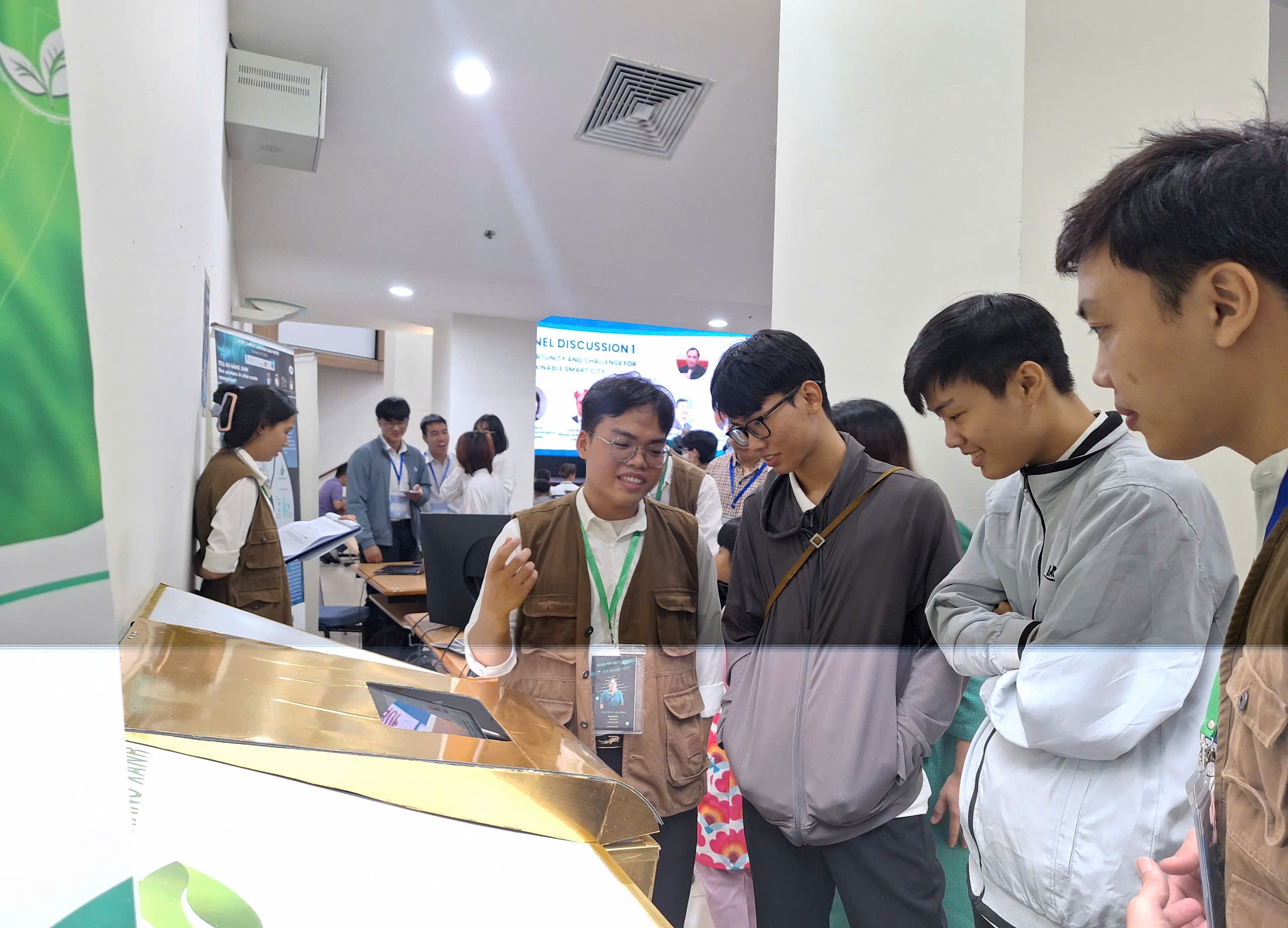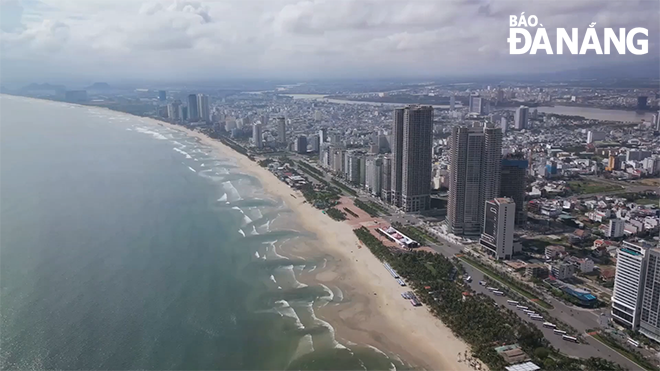Da Nang students join hands in scientific research
The tendency of students doing scientific research and innovation at universities is growing. To increase the effectiveness of projects and topics participating in competitions, many student groups from universities have made joint efforts to have more comprehensive topics with high application efficiency in life.
 |
| A group of students from the University of Science and Technology and the University of Economics under the University of Da Nang introduce the group's product model at a competition. Photo: THU HA |
At the 2024 Asia-Pacific Smart Campus competition, a team of five students from the University of Economics and the University of Science and Technology, both under the University of Da Nang (UD) won the third prize. This is the only joint team of two universities in the field of economics and technology to make it to the final round this year.
The group’s topic ‘Green Da Nang - a new solution in urban waste management’ was proposed as an innovative solution, with the goal of using advanced technology to effectively manage waste, while changing people’s habits and awareness of waste classification. Through the smart trash bin system and community website, this model helps solve the problem of waste management and contributes to environmental protection.
According to Vu Hoang Quan, a fourth- year student of the Faculty of Hydraulic Construction, the University of Science and Technology, with the theme ‘Innovative solutions for sustainable development’, applying creative technology solutions such as AI, IoT and Robotics to bring values and utilities to develop smart cities, the group searched for and recruited members suitable for the group's topic.
According to Quan, linking students from two groups of economic and technical universities helped the group complete tasks that required professional capacity from their majors.
Given that group members studies different majors, they supported each other a lot during the implementation process. For example, technical and technological issues were undertaken by students from the University of Science and Technology, they will come up with ideas, design models, design explanatory content. Issues of analysis and assessment of feasibility, presentation of topics, model testing, writing content for models, presentations and translations were carried out by students of the University of Economics.
In her perspective, Dr. Doan Thi Ngoc Canh, a lecturer of the University of Economics, remarked that the joint effort between the University of Science and Technology and the University of Economics in implementing scientific research topics and startup projects, in addition to the technical factors presented, also needed to evaluate the impact and economic efficiency.
Each product needs to reach the public as quickly as possible, so the joint effort of the group of students majoring in economics and engineering was a perfect combination of the parties. One side applied science and technology in the topic, the other side evaluated the actual application through the numbers specifically calculated for the topic.
As the person who directly guides the group of students in implementing the topic, Assoc. Prof. Dr. Vo Ngoc Duong from the University of Science and Technology, assessed that students were very quick in approaching topics.
The cooperation between students from the two majors of engineering and economics was very compatible, helping them complete the topic effectively and comprehensively, especially in the current integration trend, requiring university students to have many skills, general and diverse knowledge.
Alliances and cooperation in scientific research and innovation helped students improve their teamwork skills, make use of the advantages of each major, and apply them to the topic. Assoc. Prof. Dr. Vo Ngoc Duong added that this was not the first time student groups of the University of Science Technology had formed alliances and cooperated with other schools, and achieved good results.
Previously, also at the 2023 Asia-Pacific Smart Campus competition, many university alliance teams won high achievements such as the first prize for the topic ‘The application of LoRa to IoT systems to ensure power quality’ by a group of students from the University of Science and Technology and the University of Economics; the second prize for the ‘System for monitoring and diagnosing leaks in liquid pipeline systems via LoRa communication network’ by a group of students from the University of Technology and Education and the University of Economics; the business prize for the ‘LoRatrack logistics: Tracking and managing containers in the supply chain - applying LoraWan technology’ by a group of students from the University of Science and Technology and the University of Technology and Education.
Student Vu Hoang Quan said that, after winning the prize, the team members continued to together research this topic and further develop the integration of the city’s LoRa network to run the model.
The team is aiming for the city’s incubator and related environmental competitions. Hopefully, the group’s collaborative project will bring value to the city and help raise awareness of waste classification among residents, towards a smart city as well as sustainable development in the future.
Reporting by THU HA - Translating by A.THU








